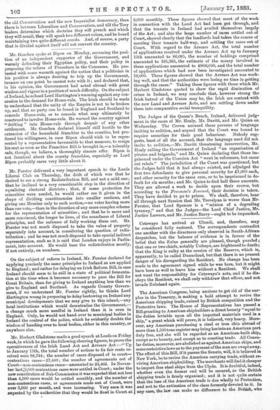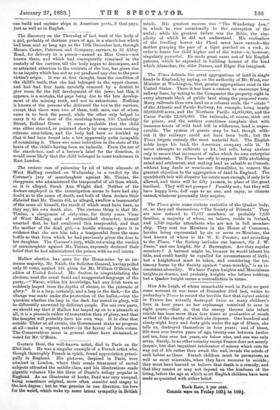The American Congress, being anxious to get rid of the
sur- plus in the Treasury, is making a bold attempt to revive the
shipping trade, ruined by British competition and the Protective laws. The House of Representatives has passed a Bill granting to American shipbuilders a direct bounty "equal to the duties leviable upon all the imported materials used in a ship," a grant which will prove, it is believed, very heavy. More- over, any American purchasing a steel or iron ship abroad of more than 1,500 tons register may bring herinto an American port duty free, and she will be regarded as an American-built ship, except as to bounty, and except as to coasting trade. All Consu- lar duties, moreover, are abolished as against American ships, and some restrictive laws as to the payment of the men are swept away. The effect of this Bill, if it passes the Senate, will it is believed in New York, be to revive the American carrying trade, without re- viving American shipbuilding. The merchants will find it cheaper to import free steel ships from the Clyde. It is doubtful, indeed, whether even the former end will be secured, as the British shipping trade is firmly organised ; and it is not quite certain that the loos of the American trade is due wholly tci Protection, and not to the extinction of the class formerly devoted to it. In any case, the law can make no difference to the British, who .ean build and register ships in American ports, if that pays, just as well as in English.







































 Previous page
Previous page